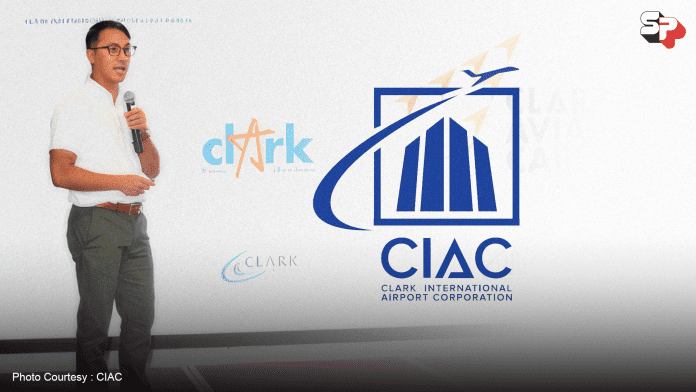CLARK FREEPORT ZONE –The sprawling prime government land surrounding the Clark International Airport will now be called the Clark Aviation Capital of the Philippines.
Clark International Airport Corp. (CIAC) president Arrey Perez on Monday led the formal launching of what he described as the “aviation-centric business capital of the country” during a general assembly here with the agency’s directors and some 150 personnel.
Department of Transportation (DOTr) Undersecretary for Aviation Roberto Lim, Bases Conversion and Development Authority (BCDA) vice president Kenneth Peralta and Dr. John Ortiz Teope, who represented BCDA chair Thompson Lantion, attended the event.
“Clark makes one’s dream work. Then the airport is at the center of Clark, the heart that connects the country to the world. But the airport is just one special component in this [aviation] capital we will build, because beyond this airport is an aviation-centered metropolis that will make the dream that work, fly. And because it works, dreams fly,” Perez said, as quoted in a news release.
The CIAC is a subsidiary and the premier aviation and land development arm of the BCDA, tasked by the DOTr to exercise oversight functions over the Clark airport.
“The medium is the vision — to build the country’s aviation capital with a dynamic ecosystem combining aviation, logistics, commerce, and sustainable urban development contributing to national economic progress,” Perez said.
The Clark Aviation Capital covers 2,367 hectares of government-owned land primed for local and foreign investments.
“The capital will transform the erstwhile idle lands to a global hub for innovation, investment and infrastructure to boost airport operations, generate new revenue streams, and promote economic and food security,” Perez said.
Perez said the CIAC is looking toward attracting partners in cargo and logistics services, vertical infrastructure projects, sustainable development of heritage parks to lure in more tourists, and institutions like the national food hub — all clustered as the Seven Flagship Projects — and other initiatives that will substantially contribute to the nation’s economy.
Since September last year, the CIAC has been aggressively promoting the seven flagship projects bannered by the Clark National Food Hub, a proposed legislative bill that was approved by the House of Representatives’ Committee on Trade and Industry on Aug. 20.
The flagship projects also include the establishment of a World Events and Entertainment Center, and the Urban Renewal and Heritage Conservation program.
Also in the pipeline are the Direct Access Road Link to Clark Airport project, upgrading of road networks and facilities, detailed site development plan of the second runway, and the building of the Clark Aviation Capital headquarters. (PR)

